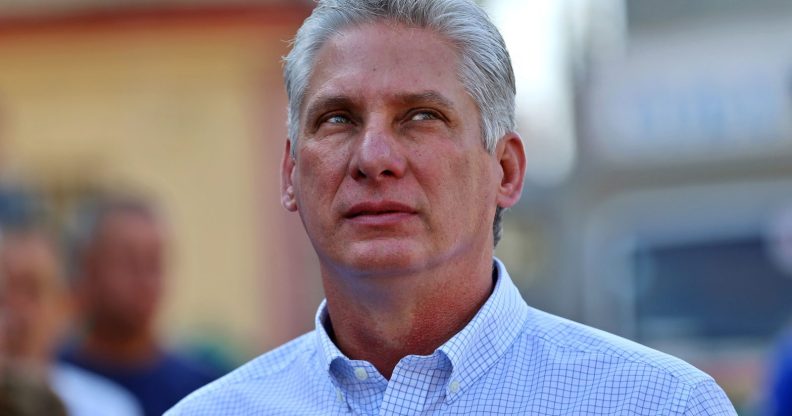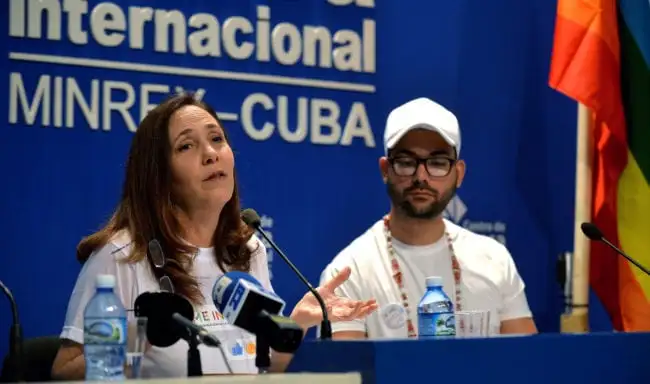Cuban President Miguel Diaz-Canel backs same-sex marriage

Cuba’s First Vice-President Miguel Diaz-Canel queues at a polling station in Santa Clara, Cuba, during an election to ratify a new National Assembly, on March 11, 2018.
Cuba’s President Miguel Diaz-Canel has said he is in favour of legalising same-sex marriage in the country.
Speaking on TV Telesur, he said he was in support of recognising marriage “between people without any restrictions” to help eliminate “any type of discrimination in society”.
In April, Diaz-Canel took over as president from Raul Castro, the brother of Fidel Castro.
Cuba is in the process of updating its Soviet-era constitution, as part of a package of reforms intended to modernise the country.

A Pride event in Havana (YAMIL LAGE/AFP/Getty)
The new charter is expected to include greater LGBT+ rights and an age limit on presidential terms, following the rule of Castro and his late brother Fidel, who both led the country into their 80s.
Earlier this year, Cuba’s national assembly named Raul Castro as the new head of the commission in charge of carrying out changes to the constitution, which previously defined marriage as between a “man and a woman”.
According to state newspaper Granma, the new constitution would define marriage as a “voluntary and consensual union between two people without distinction of sex”.
It may not allow same-sex weddings to begin immediately upon adoption of the document, but would significantly ease the process for any future legislative or legal advance.
The draft constitution would also affirm “the principle of non-discrimination based on sexual orientation and gender identity”.

Mariela Castro (L) speaks during a press conference to mark the Cuban Day Against Homophobia and Transphobia in Havana (YAMIL LAGE/AFP/Getty Images)
The landscape for LGBT+ rights has changed dramatically in Cuba in recent years, in part, due to a campaign by Mariela Castro, the daughter of Raul and the niece of Fidel.
She is the director of the state-run National Centre for Sex Education (Cenesex) and since 2008, gender reassignment surgery and hormone replacement therapy have been available free of charge under the country’s national healthcare system.
Under Fidel, who rose to power in 1959 after leading a revolution that toppled the corrupt government of Fulgencio Batista, LGBT+ Cubans suffered persecution and discrimination.
In the 1960s and 1970s, police began to round up gay men and many LGBT+ people were imprisoned or forced into “re-education camps”.
In 2010, Fidel apologised for the treatment of the LGBT+ community, telling Mexican newspaper La Jornada: “If someone is responsible, it’s me.”

